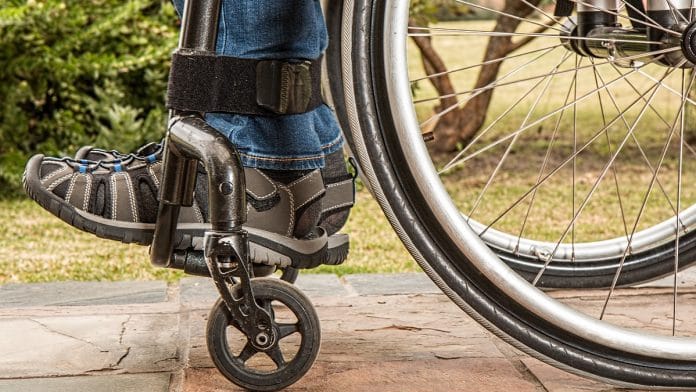After landing in Mumbai from New York, an 80-year-old passenger had a heart attack while walking 1.5 kilometres from the aircraft to the immigration counter. He later died. At the outset, the airline shouldn’t be held liable – the decision was his. He chose to walk alongside his wife, a wheelchair user. But even though the octogenarian couple had ‘pre-booked’ their wheelchairs, he didn’t get one due to “heavy demand”, as per a statement by Air India.
The statement, which appears to be a bid to save the airline’s reputation, points to the sorry state of affairs in India’s civil aviation sector. There will always be a demand for wheelchair users. According to the last Census, held in 2011, there are about 2.68 crore disabled people in India, and 20 per cent of them have mobility issues.
How are we missing the basics?
The disabled and elderly already reside in a world that is apathetic toward their rights, one that has failed them time and time again. Meeting basic requirements is the bare minimum, especially as awareness mounts and as conversations around inclusivity swell. Ensuring an adequate wheelchair supply definitely falls in the bare minimum category.
Or at the very least, once the worst has happened, there can be a show of genuine empathy. That’s reassuring enough to make people believe that it won’t happen again.
That India is a young nation is often reiterated by our politicians and economists. But in a country with over 140 crore people, it’s not hard to guess that even the proportion of the elderly would be huge. The Indian economy has grown at a decent pace and the erstwhile workforce of the last three decades has money to fly frequently. Wheelchair support is the least airlines can dedicate to serve this customer base.
Airports in India are plush as ever, mimicking the luxurious homogeneity of those in the West. Hours can be spent window shopping, you can sneak in a massage and have fast food delivered to the gate too. If you’re willing to fork out, there’s ample legroom, and at the terminal, you can get your pre-flight alcohol fix. There are examples abound, but the point is – technically, it’s easier than ever. How are we missing the basics?
While the luxurious amenities are a draw, the underlying infrastructure and operational efficiency at these airports are equally crucial. The government has made promises to enhance the number of airports, which could potentially improve the overall travel experience. For instance, the BJP’s commitment to double the number of functional airports in India by 2024 reflects a growing recognition of the need for better facilities.
Also read: Pandit Ravi Shankar’s insecurity robbed India of a musical genius—Annapurna Devi, his wife
Move beyond fluff
The chink in the armour’s very much visible. There’s a focus on the fluff, and not on the fundamentals. Going by the swank, it’s inconceivable to think that airlines or airport authorities would be unable to fulfil basic, no-brainer requirements. As it is, flying is an expensive, stressful ordeal. Panicked flyers are the norm, and on-ground staff don’t make things much easier. Glassy-eyed expressions and words that mean nothing don’t qualify as customer service – the importance of which can’t be exaggerated.
News reports often capture the capacity, facilities and most importantly, the money spent on building ‘world-class infrastructure’ and the flights that will operate out of the airport. They will build unending moving walkways but not have enough support for those who need it the most.
Of course, passengers are entitled and aggressive, and there are a multitude of things that are out of the airline’s control. But being suspended mid-air in a metallic box is not a joke, and airlines have to be cognisant of how mammoth their responsibilities actually are. It’s not just the pilot, every single staff member plays a role. One-and-a-half kilometres is a sizable distance for anyone to travel by foot, and if they didn’t have a wheelchair, they should have arranged for any other means of transport.
In this day and age, every airborne incident makes it into the news cycle – sometimes they’re funny, sometimes they’re disgusting, but sometimes – as is in this case – they’re tragic and entirely preventable. A statement doesn’t suffice. Decisions need to be made, and ordinary people need to be privy to them. Tracks need to be made to ensure that this never happens again. We can do without the massage.
Airlines can take seat cushions out to run budget carriers, not critical support. Wheelchairs are critical.
(Edited by Zoya Bhatti)






